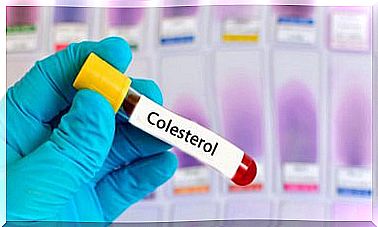Measles During Pregnancy
Measles during pregnancy carries a number of risks for the mother and the fetus. This is why it is important to know how the disease develops and what you can do to prevent it.

Today we are talking about a contagious respiratory disease that can be fatal. Measles during pregnancy poses a threat to the health of the mother and fetus as it increases the risk of premature birth, miscarriage, and deformities in the baby.
Although vaccination can prevent the disease and the death rate from measles has decreased by 80% in the past 10 years, there were 110,000 deaths in 2017, with children under 5 years of age particularly affected.
What is measles?
Measles is a disease caused by a virus in the paramyxovirus family. The virus multiplies in the nose and throat of people and is transmitted when we expel it by coughing or sneezing. This allows it to linger in the air or land on a surface where it remains active for several hours and can spread to people who come in contact with it.
Symptoms of measles
Symptoms of measles appear 10 to 14 days after exposure to the virus and manifest themselves in different ways. Below is a list of the main symptoms of measles:
- fever
- cough and sore throat
- Inflammation of the nasal mucous membrane
- Conjunctivitis
- Spots in the mouth known as Koplik’s spots
- Rash all over the body
These symptoms come in two stages. First of all, the flu or cold symptoms such as fever, cough and eye pain become noticeable. Then, after two or three days, a rash appears on the skin and in the mouth. Within a few days, the rash spreads all over the body.
Measles is contagious from the first day flu-like symptoms appear and then for up to 4 days after the rash appears. Without complications, the disease lasts for about 10 days.

Complications from measles
The most common complications of measles are:
- diarrhea
- lung infection
- Encephalitis
- Corneal ulcers
A less common case is panencephalitis, which occurs when the virus takes hold in the brain. There it remains passively for a period of 4 to 8 years. Eventually the virus progresses and becomes active; this causes serious neurological problems that lead to personality disorders, motor problems, and ultimately death.
Measles During Pregnancy
Pregnant women who have never had measles or have not been vaccinated are prone to infection. Dr. Neil Silverman, board member of the Center for Fetal Medicine and Women’s Ultrasound in Los Angeles, California, warns that symptoms of measles during pregnancy are often more severe and have consequences for the fetus and pregnancy.
The main risks to the baby are as follows:
- Premature birth
- Miscarriage
- Encephalitis
- blindness
- Deafness
- Physical deformities
If a woman develops measles, doctors can treat her with an injection of antibodies. It is an immunoglobulin serum that reduces symptoms. Doctors give it within 6 days of infection.
Measles During Pregnancy: Vaccination Risks in Pregnant Women
The measles vaccine contains the active virus, so it should not be used in pregnant women. The reason for this is that it can be passed on to the baby if vaccination is given in the following periods:
- From 6 months before pregnancy
- During pregnancy
- Within 30 days of birth if the baby is breastfed

“If a woman has been vaccinated or has already had measles , her antibodies get to the baby in breast milk, so the infection is very mild for him. However, if a woman becomes infected while breastfeeding, she can pass the disease on to the baby; this is extremely dangerous for the baby. Most deaths from measles occur in breastfeeding infants. ” According to Dr. José Tessone, who works at the Center for Integral Gynecology of Mexico.
vaccination
The measles vaccine is recommended from 12 months of age with a second dose 28 days later. Research shows that the vaccine reduces the risk of developing measles by 90%.
In some cases, doctors recommend re-vaccination in adults. “When vaccination against measles started around 40 or 50 years ago, the immune system often had to fight the virus. Now that the virus is rarer, people who were vaccinated between the 1960s and 1980s could be more susceptible to the disease today, ”says Dr. Silverman. However, vaccination against measles during pregnancy must be carried out according to the guidelines mentioned.









